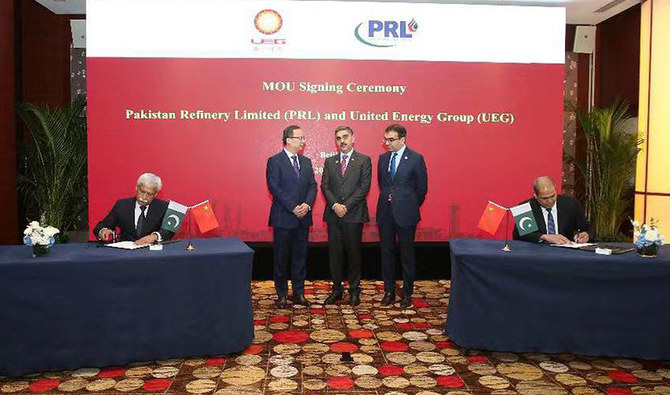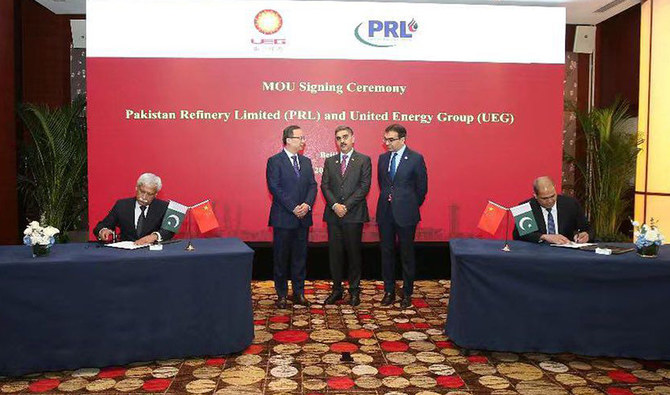
- Pakistan Refinery Limited, United Energy Group of China sign MoU during the 3rd Belt and Road Forum in Beijing
- Agreement to increase Pakistani refinery’s petrol production capacity from 250,000 metric tons to 1.6 million metric tons
ISLAMABAD ( Web News )
The Pakistan Refinery Limited (PRL) and the United Energy Group of China (UEG) on Wednesday signed a memorandum of understanding (MoU) for investment worth $1.5 billion in Pakistan’s petroleum sector, the Prime Minister’s Office (PMO) said, as Islamabad attempts to cut its reliance on costly imported fuel to ward off its energy crisis.
The MoU was signed between the two firms during the ongoing 3rd Belt and Road Forum in Beijing. Pakistan’s Caretaker Prime Minister Anwaar-ul-Haq Kakar and representatives from many developing countries, notably from Latin America and Africa, are in China to attend the two-day conference which concludes today, Wednesday.
Kakar and Pakistan’s Caretaker Energy Minister Muhammad Ali witnessed the signing ceremony of the agreement between the two firms, according to the PMO’s statement.
“Petrol and high-speed diesel obtained from the refinery will not only replace expensive imported fuel, but the refinery’s petrol production capacity would increase from 250,000 metric tons to 1.6 million metric tons,” statement said. It added the agreement would also help to increase high speed diesel’s production capacity from 0.6 million metric tons to 2 million metric tons.
Pakistan lacks adequate resources to run its oil- and gas-powered plants and energy imports make up the majority of the country’s external payments as it faces an economic crisis with an acute balance of payments problem.
With a September inflation rate of 31.4 percent mainly driven by fuel and energy prices, millions of Pakistanis face a cost-of-living crisis and are struggling to survive. Pakistan’s poverty rate has risen from 34.2 percent to 39.4 percent in the last one year, according to the World Bank.
Energy-deficient Pakistan has recently moved to improve ties with Russia and received its first deliveries of Russian crude under a deal struck between the two countries earlier this year. The South Asian country’s energy crisis has forced Islamabad to explore the diversification of its energy imports at cheaper rates. Last month, Pakistan also received its first shipment of liquified petroleum gas from Moscow.

